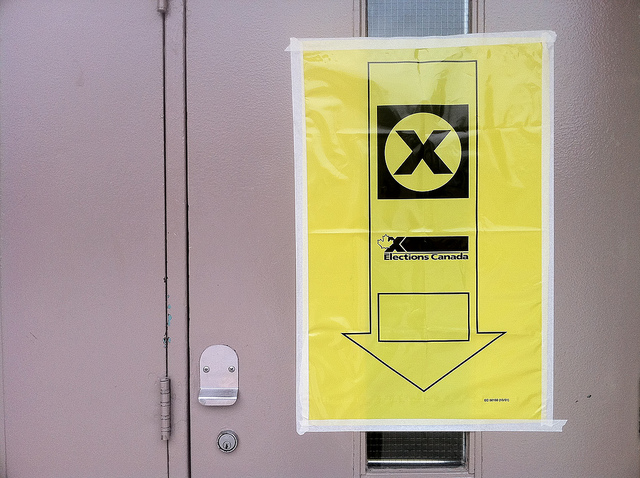Chip in to keep stories like these coming.
Believe it or not, the fight over Stephen Harper’s Fair Elections Act is not over.
It is true that after persistent efforts by the Official Opposition’s Craig Scott, and pressure from elements of their own base, the Conservatives changed some of the Act’s obnoxious provisions.
But many still remain.
Among those are: the limits on the powers of the Elections Commissioner (the chief investigator of abuse) and the Chief Electoral Officer, the end of vouching and the added ID requirements that will bar many (especially among the young and the poor) from voting.
The Council of Canadians and the Canadian Federation of Students have gone to court with a Charter of Rights challenge to the Fair Elections Act.
The right to vote is guaranteed by the Charter, and the Council and students’ group say the Act jeopardizes that right for tens of thousands of Canadians.
When they brought the case in early October of 2014, the lawyer for the case, Steven Shrybman, said he hoped they would get a hearing before the end of the year.
That did not happen.
Now an election is looming, which could come as early as this spring, and Shrybman and his clients are trying to expedite the process in order to get a decision before the next campaign starts.
Conservatives’ misused Neufeld Report to vastly exaggerate voter fraud
As part of that effort, on Monday they released some of the evidence they intend to present to the court.
Among the witnesses Shrybman will call is the former Chief Electoral Officer of British Columbia, Harry Neufeld. Neufeld is author of a Compliance Review report Elections Canada commissioned following the 2011 election. The review was in response to concerns about the proper application of voter registration rules during the last election.
In his report, Neufeld recommended that administrative requirements for vouching be simplified and that Elections Canada make greater use of the Voter Information Cards (VICs) that almost all voters receive prior to each election.
Instead of following those recommendations, the Conservative government did the opposite.
It banned the use of VICs even as corroborative ID, and killed vouching (used by 120,000 voters last time) altogether.
In the testimony he will give to the court, Neufeld points out that the government misused his report to make a false claim that voter fraud was widespread during the last election.
Neufeld’s words are simple and clear: “My study did not make a case that voter fraud is a problem in Canadian federal elections.”
The very few cases in which Canadians tried to vote more than once are almost all attributable to mental incapacity or extreme age, Neufeld explains.
Other witnesses include former senior public servant David Elder, who will give evidence of the dangers created by changing the role and functioning of the Commissioner of Canada Elections (the chief investigator).
The Fair Elections Act moved the Commissioner out of the Elections Canada office into that of the Director of Public Prosecutions, who reports to the federal Justice Minister (an elected politician).
Elder says this move will diminish the independence of the present and future Commissioners, who might one day be called upon to investigate their own (politician) bosses. As well, he says, it weakens Elections Canada, thus calling the integrity of elections into question.
Other witnesses will address the difficulties a mobile Canadian student population has in exercising its right to vote, and how the new rules will exacerbate those difficulties. They will, in fact, create almost insurmountable barriers for many students.
An injunction setting aside parts of Fair Elections is possible
Notwithstanding all of this evidence, however, the challenge for the Council and the students’ federation remains getting the court to hear the case before an election is called.
Shrybman says they have considered that challenge and will, if necessary, apply to the court for an injunction to set aside certain provisions of the Fair Elections Act, if the case is not decided before the next election campaign gets under way.
The Council and students’ lawyer explains that a judge can determine that, on balance, because the potential harm to the right to vote of thousands of Canadians is so great, certain elements of the Act must be stayed until the court can hear the full case.
All of this is creating lots of work for government lawyers; but it is not just a matter of legal manoeuvring.
The Council and the Federation of Students argue that they have evidence that the votes of tens of thousands of Canadians could be at stake.
Photo: Sameer Vasta/flickr



